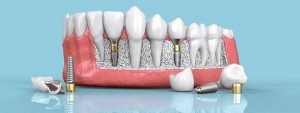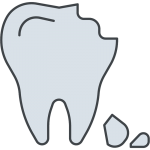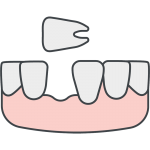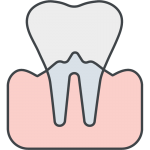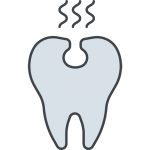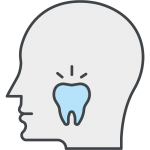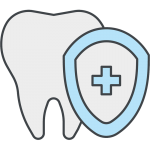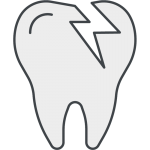Wisdom teeth are your third set of molars – it is very common to have these removed at some point in your life.
At Aperture Dental, we understand having your wisdom teeth removed may be a daunting, scary experience. This is why we are preparing our patients with a few tips to recovery and what to expect during the procedure.
Understanding your wisdom teeth
So, what are wisdom teeth? They are your third set of molars in the back of your mouth and are the last permanent teeth to erupt. Wisdom teeth usually erupt between the ages of 17 and 25. However they can continue to erupt until the age of 30. The decision to extract your wisdom teeth is usually due to a number of factors:
- They have impacted, grown in at an angle at which it is colliding with or jammed against another structure causing pain
- They have come in at an angle that is causing damage to nearby teeth
- Your mouth simply isn’t big enough to handle extra set of molars
- Repeated cavities or gum disease when you cannot reach your wisdom teeth with your toothbrush or dental floss leading to pericoronitis
At Aperture Dental, we recognise the need for a quick and less painful healing process after your wisdom tooth extraction, for us, your good oral and overall health comes first.
How do wisdom teeth extractions work?
Your wisdom tooth extraction surgery is estimated to take around 45 minutes or less.
Before the Procedure
Before the extraction, we make sure we have a detailed patient history and a clear understanding of your dental situation. This includes what types of procedures you’ve had done previously and what medication you’re currently on.
This is also the time to think about what information and questions you might have for your dentist to help ease your mind before your procedure.
Once you have confirmed your appointment with us, it is advised to plan ahead for your day of extraction and thereafter. Make the necessary arrangements for someone to drive you home after the operation. We also suggest to make plans to free up a few days post-op to ensure enough rest time and minimal movement to allow proper healing.
You will receive an anaesthetic prior to your surgery so you don’t feel pain during the extraction procedure. There are a number of anaesthesia options depending on the expected level of complexity of your procedure including:
- Local anaesthesia: When you’re awake and may feel some pressure but shouldn’t feel pain
- Sedation: You are awake but semi-conscious
- General anaesthesia You’re unconscious and unaware of any pain during the procedure
During the Wisdom Tooth Extraction
Your dentist or oral surgeon generally carries out the following:
- Makes an incision in the gum tissue to expose the tooth and bone
- Removes the bone to gain access to the tooth root
- Determines the best method to remove the tooth; whether or not it would be easier to remove in pieces
- Removes the tooth
- Cleaning of the site of extraction of any debris from the bone or tooth
- The surgeon could decide to suture the wound to assist in the formation of a blood clot, and to aid the healing process
- Gauze is placed over the wound after the tooth is extracted. This causes pressure on the wound area and helps reduce the bleeding
After the Procedure
After your procedure, you will be taken to a recovery room if you have received sedation or general anaesthesia. However, if you have local anaesthesia, your brief recovery time is most likely in the dental chair.
Taking precaution after your procedure will aid your healing and recovery process, especially taking care to control post-surgery side effects namely, bleeding and swelling.
There are actions you could take to minimise your pain and swelling such as:
- Using cold packs and prescribed anti-inflammatory medication to minimise swelling. It helps to hold the ice pack near the affected area for about 3 hours – 20 minutes at a time.
- Take painkillers if needed and as prescribed. Painkillers such as aspirin are not recommended, and they can lead to prolonged bleeding.
- Stay elevated – Use extra pillows to lift your head when you lie down. This will assist in reducing bleeding as well as swelling.
- Drink lots of water – make sure it’s lukewarm. Keeping hydrated is essential to the recovery process.
- No solid foods for the first 48 hours, eat or drink cooled-down food and drinks that do not require chewing, such as yoghurt and thin soup
- Limit all general activity
- Even the mildest of strenuous activity can dislodge the blood clot in the wound, exposing bone and creating a painful dry socket
- Avoid touching or poking at the surgery area, especially if you have stitches
- Avoid swishing, blowing, spitting or sucking movements (whether at cigarettes or drinks) especially within the first 8 hours to not interrupt the blood clotting and healing process
- You should get as much rest as possible
When to Call Your Dentist or Surgeon
Make sure you contact your dentist or oral surgeon immediately if you display the following symptoms in order to detect early what could be a serious complication from the procedure:
- Difficulty in breathing or swallowing
- Pus in or around the extraction site
- Blood or pus in nasal discharge
- Any tingling or loss of sensation
- Excessive bleeding
- Fever
- Unbearable pain that can’t seem to improve with the prescription pain relief medication
- Swelling that is getting progressively worse as days pass
Wisdom Teeth Extraction - Sunnybank Hills
To book an appointment with us or to find out more about wisdom tooth extraction, contact us today!




